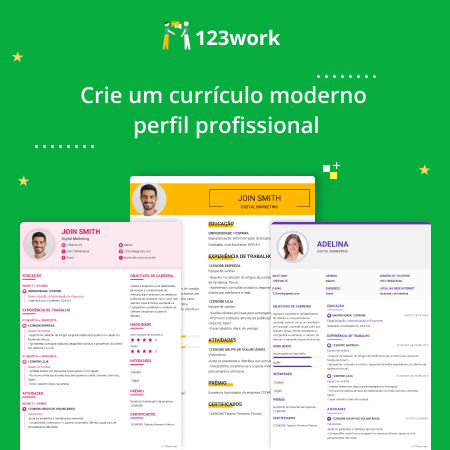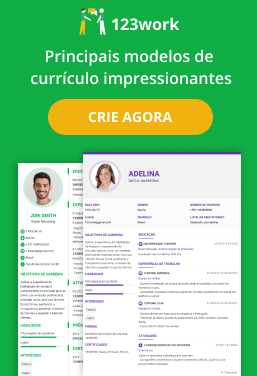.
Qualifications
OBJECTIVE OF THE OFFICE/DEPARTMENT
This is a requisition for employment at the Pan American Health Organization (PAHO)/Regional Office of the World Health Organization (WHO)
The Comprehensive Immunization (CIM) department of the Pan American Health Organization promotes, coordinates and implements technical cooperation at the regional, sub regional and country levels, emphasizing the central role of the Comprehensive Immunization (CIM) with the following components that promote the use of comprehensive management principles and methods: Planning and programming (micro and macro); intra-and extra-institutional organization and coordination; epidemiological and laboratory surveillance; human resources and financial management; supervision and techniques; information systems; cold chain management; vaccine supplies, inputs and equipment; research; evaluation; risk communication and evidence-based information; safe vaccination; sectoral and community execution and management. It focuses on the development and implementation of immunization and vaccination as an integral part of the health systems for the control, elimination, and eradication of vaccine-preventable diseases according to the national calendar directed to the family and affecting healthy development during the life course, contributing to the strengthening of institutional capacities in the area of immunization.
DESCRIPTION OF DUTIES
Under the general supervision of the PAHO/WHO Representative, and the direct supervision of the Advisor, Immunization, the incumbent is responsible for, but not necessarily limited to, the following assigned duties:
1. Provide technical advice and support in programming and evaluating national plans and strategies for national immunization programs, with respect to:
- immunization strategies;
- cold chain and safety equipment and procedures;
- delivery of vaccines and related supplies;
- training of personnel in all aspects of program implementation;
- systems for reporting immunizations administered and integration into general reporting systems of mother, child and family health;
- the organization of epidemiological surveillance systems to detect, investigate, and control cases of paralytic poliomyelitis, measles, rubeola, neonatal tetanus, and other vaccine-preventable diseases;
- support the management of the initiative to eliminate diseases related to vaccination or immunization;
- intra and extra-sectoral coordination, coordination at institutional level and within the United Nations (UN) system, as well asregional level;
- mobilization of resources from national and international sources through Inter-Agency Coordination Committee (ICC) partnership;
- local and scientific community mobilization for immunization programs;
2. Participate in the development and update of national plans for comprehensive immunization programs, including the development of objectives, strategies and operational methodologies within primary health care systems;
3. Prepare and organize training programs in the operational and administrative aspects of immunization programs and surveillance activities for vaccine-preventable diseases;
4. Provide technical support to other national institutions for the development of national immunization programs;
5. Support the development and promote research programs related to different operational and epidemiological components of immunization program and related activities at the country level;
6. Provide technical support to national and international organizations in making optimal use of technical, administrative, and economic resources available for the achievement of the overall goals of IM and in particular, the maintenance of polio-free status and the eradication of measles in the Americas;
7. Collaborate with other Units to achieve effective coordination of program activities and appropriate utilization and mobilization of resources;
8. Collaborate in the preparation of biennial programs and budgets, semiannual work plans and periodic evaluations for assigned projects; participate in the annual immunization evaluation and in the preparation of technical cooperation reports;
9. Collaborate in the introduction of new vaccines, including the analysis of events supposedly associated with vaccination or immunization ;
10. Perform other related duties as assigned.
REQUIRED QUALIFICATIONS
Education:
Essential: A bachelor’s degree in a health-related discipline related to the functions of the post from a recognized university.
Desirable: A master’s degree in health science or other areas of health.
In the event that your candidature is retained for an interview, you will be required to provide, in advance, a scanned copy of the degree(s)/diploma(s)/certificate(s) required for this position. PAHO, only considers official degrees obtained from an institution accredited/recognized in the World Higher Education Database (WHED), a list updated by the International Association of Universities (IAU) / United Nations Educational, Scientific and Cultural Organization (UNESCO). The list can be accessed through the link: http://www.whed.net/. PAHO will also use the databases of the Council for Higher Education Accreditation http://www.chea.org/ and College Navigator, found on the website of the National Centre for Educational Statistics, https://nces.ed.gov/collegenavigator to support the validation process.
Experience:
Essential: Five years of national professional experience in disease control programs, with emphasis on the design, implementation, and evaluation of immunization programs. Experience should include participation in technical cooperation programs and activities in disease control or in immunization programs in a health-related program or institution.
SKILLS:
PAHO Competencies:
· Overall attitude at work: Maintains integrity and takes a clear ethical approach and stance; demonstrates commitment to the Organization’s mandate and promotes the values of the Organization in daily work and behavior; is accountable for work carried out in line with own role and responsibilities; is respectful towards, and trusted by, colleagues and counterparts.
· Teamwork: Collaborate and cooperate with others. - Works collaboratively with team members and counterparts to achieve results; encourages cooperation and builds rapport; helps others when asked; accepts joint responsibility for the teams’ successes and shortcomings. Identifies conflicts in a timely manner and addresses them as necessary; understands issues from the perspective of others; does not interpret/ attribute conflicts to cultural, geographical or gender issues.
· Respecting and promoting individual and cultural differences: Relate well to diversity in others and capitalize on such diversity - Treats all people with dignity and respect. Relates well to people with different cultures, gender, orientations, backgrounds and/or positions; examines own behavior to avoid stereotypical responses; considers issues from the perspective of others and values their diversity.
· Communication: Express oneself clearly when speaking/Write effectively/Listen/Shares knowledge - Quality and quantity of communication targeted at audience. Listens attentively and does not interrupt other speakers. Adapts communication style and written content to ensure they are appropriately and accurately understood by the audience (e.g., power-point presentations, communication strategies, implementation plans). Shares information openly with colleagues and transfers knowledge, as needed.
· Knowing and managing yourself: Manages stress/Invite feedback/Continuously learn - Remains productive even in an environment where information or direction is not available, and when facing challenges; recovers quickly from setbacks, where necessary. Manages stress positively; remains positive and productive even under pressure; does not transfer stress to others. Seeks feedback to improve knowledge and performance; shows self- awareness when seeking and receiving feedback; uses feedback to improve own performance. Seeks informal and/or formal learning opportunities for personal and professional development; systematically learns new competencies and skills useful for job; takes advantage of learning opportunities to fill competencies and skill gaps.
· Producing Results: Deliver quality results/Take responsibility - Produces high-quality results and workable solutions that meet clients’ needs. Works independently to produce new results and sets own timelines effectively and efficiently. Shows awareness of own role and clarifies roles of team members in relation to project’s expected results. Makes proposals for improving processes as required and takes responsibility for own work and/or actions, as necessary. Demonstrates positive attitude in working on new projects and initiatives. Demonstrates accountability for own success, as well as for errors; learns from experience.
· Moving forward in a changing environment: Propose change/Adapt to change - Suggests and articulates effective and efficient proposals for change as needed when new circumstances arise. Quickly and effectively adapts own work approach in response to new demands and changing priorities. Is open to new ideas, approaches and working methods; adjusts own approach to embrace change initiatives.
Technical Expertise:
· Practical knowledge of the epidemiology of communicable diseases, especially vaccine-preventable diseases; use of epidemiological principles and methods to solve problems related to vaccine-preventable diseases; ability to respond objectively to unforeseen problems and to exercise sound judgment in finding technical solutions within the framework of organizational policy.
· Broad knowledge of organization and implementation of public health programs and public health administration.
· Theoretical and practical knowledge in the formulation of technical cooperation interventions and in the development of criteria and instruments for evaluating program intervention.
· Knowledge and skills in project planning and management, including resource mobilization and grant management.
· Demonstrated ability to negotiate and coordinate activities with all relevant sectors of government, international agencies, the private sector, and organized community groups.
· Strong professional oral and writing skills, including the development of reports, oral presentations, and technical/persuasive documents for consideration at the highest levels of the Organization.
Languages:
Very good knowledge of Portuguese with a working knowledge of English or Spanish.
IT Skills:
Demonstrated ability to effectively use current technology and software, spreadsheets and presentations, as well as Enterprise Resource Planning (ERP) and management information systems. Other IT skills and knowledge of software programs such as Microsoft Excel, Outlook, OneDrive, PowerPoint, Teams, SharePoint, and Word are considered essential.
REMUNERATION
Annual Salary: (Net of taxes)
BRL R$284,557.00
ADDITIONAL INFORMATION (Local Recruitment)
This vacancy notice may be used to fill other similar positions at the same grade level.


